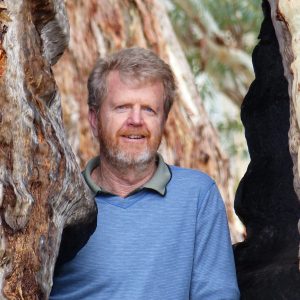Meet the Speaker – Tony Roberts

PROFESSOR TONY ROBERTS
University of Adelaide
We talk to Professor Tony Roberts about tsunamis, cheetahs and the way that applied mathematics is helping to empower science and engineering.
1. Can you tell us about your work? What drives your interest in this field?
One of the fundamental questions for an applied mathematician seeking to use maths in some application is to decide what level of detail to choose in order to characterise the problem. For example, should one choose to study epidemics by detailing what happens to every individual? Or by simply by the coarse counts of infected and surviving people? For example, should we try to solve a PDE? Or resort to a computational discretisation? My interest is in what is the relationship between mathematical models at various levels of detail? How do we move from one level to another? In a way as rigorous as possible? With realistic levels of uncertainty?
2. What are the most interesting “big questions” or challenges facing researchers in your area?
Accurately modelling and computing with multiscale problems over large domains of space-time, and especially with the massive parallelism of upcoming exascale computers.
3. What are your favourite applications of your work?
The modelling and simulation of turbulent ‘shallow’ water flow such as floods and tsunamis. Also the formation and evolution of patterns in space, such as the stripes on a tiger or the spots on a cheetah.
4. What are some other areas of your field that are particularly interesting to you?
Integrating computation as the third arm of science. In particular, creating mathematical methodologies with computational techniques to empower science and engineering in understanding and predicting multiscale systems in physically complicated scenarios.
5. Why did you become a mathematician?
Because I wanted to play with the world that I see and experience around me, whereas at the time when I was a student physics appeared to mostly concentrate on either the very big or the very small.
6. Do you have any advice for future researchers?
Too much, see all the discussion topics at http://www.maths.adelaide.edu.au/anthony.roberts/RMMS/ Maybe the most major advice is simply to ensure that they put significant effort into putting the results of their research explicitly in front of fellow researchers and users.
7. Deepening field knowledge and providing a networking platform, why are opportunities such as AMSI Winter School so valuable? What do you hope attendees take from your lectures?
I consider the the winter school valuable in encouraging budding researchers to experience and be involved in a much broader view of their discipline that that provided by any one university. I hope participants take away a modern view of many traditional mathematical and computational methods, a view that is more wide ranging, more ’holistic’ and more systematic and rigourous.
8. What do you consider your biggest achievement to date?
In my view it is to put a whole bunch of mathematical asymptotic and computational methods within the purview of the rigorous centre manifold theory, and then to develop techniques that use the theory in
practical application scenarios. However, my most cited work, and hence ‘biggest achievement’ as others see it, was just a chance short collaboration with a friend, having a bit of fun with the apparent contradiction between agent based modelling and algebraic analyses, and leading to showing how clustering/speciation in biology and elsewhere could arise simply by chance.
Professor Tony Roberts will be presenting the topic Multiscale modelling of microscale heterogeneous systems: analysis supports systematic and efficient macroscale modelling and simulation at the 2019 Winter School at Queensland University of Technology this July

